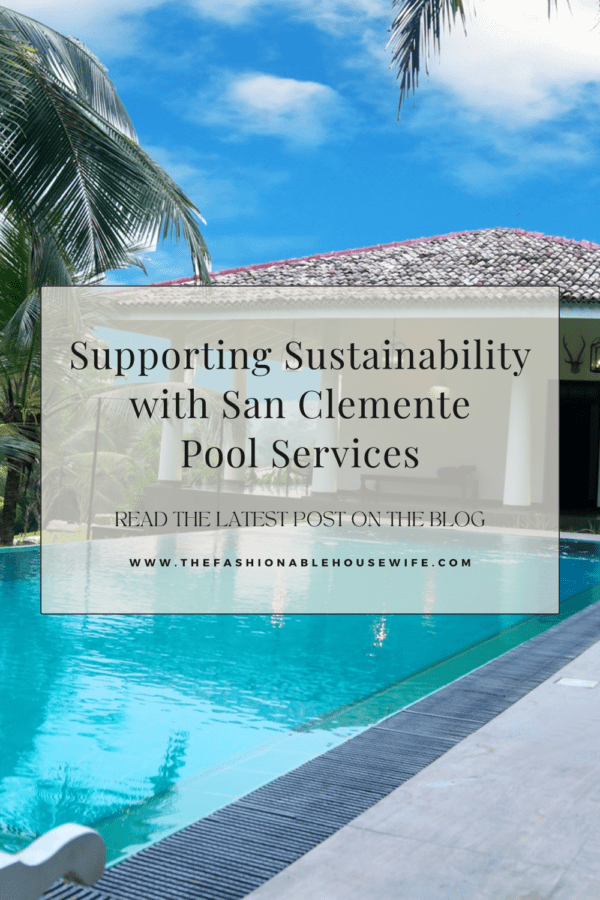
Pool care is critical; it requires regular maintenance and upkeep to keep the water safe, clean, and straightforward. Without proper pool care, the water can become contaminated with bacteria, algae, and other microorganisms that can harm swimmers. Additionally, improper pool care can cause staining and discoloration of the water or pool surfaces.
To ensure proper pool care, it’s essential to regularly test and adjust the pH and alkalinity levels of the water. This can be done with a chemical testing kit or strips or by employing a reputable pool service expert like San Clemente Pool Services. It’s also important to shock the pool regularly – this is done by adding chlorine or other sanitizing agents.
It’s also essential to keep the pool filter clean and running properly; clogged filters can cause poor circulation and filtration of the water, resulting in dirty and cloudy water. Regularly skimming the surface of the pool will help remove debris, such as leaves or bugs, that can contribute to contamination. Additionally, brushing the surface of the pool can help remove algae and other microorganisms that may have built up on the walls or floor.
Finally, it’s important to keep track of your pool chemistry and monitor for any changes. This can be done by testing the chemical levels regularly with a test kit or strips. If you notice any drastic changes in the chemical levels, contact a professional for assistance. Properly caring for your pool is essential to ensuring that you and your family have a safe and enjoyable swimming experience.
Keeping Water Quality at a Standard with San Clemente Pool Services
Balancing pH levels, alkalinity, and calcium hardness
Balancing pH levels, alkalinity, and calcium hardness with San Clemente Pool Services is essential in keeping your pool healthy and safe. The pH level of the water should be maintained between 7.2 and 7.6 to ensure that the water is neither too acidic nor too basic. Alkalinity helps to stabilize the pH level of the water, and calcium hardness helps to prevent corrosion, scaling, and staining of pool surfaces. It’s important to test your pool water regularly with a chemical testing kit or strips in order to determine the levels of these chemicals and make adjustments as necessary.
Sanitization
To ensure that your pool remains free from bacteria, viruses, algae, and other microorganisms, it’s important to properly sanitize your pool. This can be done by shocking the pool with chlorine or other sanitizing agents, such as bromine or biguanide. Additionally, UV light and ozone systems can help to eliminate bacteria and microorganisms in the water. It’s important to test your pool water regularly to ensure that the sanitizing agent levels remain within the acceptable range.
Circulation and Filtration
Proper circulation of the pool water is essential for the effective filtration of contaminants, such as leaves and dirt. A properly functioning pump and filter system will help to keep your pool clean and clear by circulating and filtering the water. To ensure effective filtration, it’s important to clean the filter regularly and replace any worn or damaged parts as necessary. Additionally, cleaning the skimmer basket will help to remove debris from the surface of the pool.
Chlorine vs. saltwater pool maintenance
Chlorine and saltwater pools are two of the most popular options for pool maintenance. Chlorine pools maintain water quality through the use of chlorine tablets or granules, which are added regularly to keep bacteria, viruses, and algae at bay. Chlorine is often considered the more traditional method of pool maintenance as it has been used for many years. Saltwater pools, on the other hand, use a combination of salt and electricity to generate chlorine which is then circulated throughout the pool water to sanitize it. Saltwater pools are often considered to be a more natural and eco-friendly approach to pool maintenance as they require fewer chemicals than chlorine pools. The choice between a chlorine or saltwater pool is largely dependent on personal preference and budget. Regardless of which type you choose, it’s important to follow the manufacturer’s instructions for maintenance and monitor your water quality regularly with a test kit or strips.
San Clemente Pool Services and Sustainable Pool Care Options
Sustainable pool care is an eco-friendly approach to maintaining a swimming pool that focuses on using fewer chemicals, less energy, and more natural methods. This type of pool care implemented by professionals like San Clemente Pool Services emphasizes the conservation of resources while still providing a safe and enjoyable swimming experience. Sustainable pool maintenance often focuses on minimizing the use of harsh chemical sanitizers, such as chlorine, and replacing them with more natural alternatives. Additionally, sustainable pool care can include the use of solar heating systems, low-flow pumps and filters that reduce energy consumption, and other eco-friendly techniques.
Using eco-friendly pool cleaning solutions
Eco-friendly pool cleaning solutions are becoming increasingly popular as people become more aware of the environmental impacts of traditional pool maintenance. Eco-friendly pool cleaners use natural ingredients and renewable energy sources to clean and sanitize pools without the use of harsh chemicals. These green cleaning products can be effective in removing dirt, bacteria, algae, and other contaminants from your pool, while also reducing your chemical usage and protecting the environment.
Implementing water-saving measures like pool covers and backwash recycling
Pool covers are an effective way to help conserve water in swimming pools. They act as a barrier, keeping out debris and cooling the water while reducing evaporation. Pool covers also reduce the need for chemical treatments and can make pool maintenance easier. Additionally, using a pool cover can reduce energy consumption by up to 70%, making it an environmentally-friendly option.
Backwash recycling is another water-saving measure that helps reduce the amount of water required for pool maintenance. By reusing filtered water instead of disposing of it, backwashing can help to save up to 2,500 gallons of water per month and reduce your environmental impact.
Considering the environmental impact of pool maintenance practices.
Pool maintenance practices can have a significant environmental impact if not done properly. The use of harsh chemical sanitizers, such as chlorine, can pollute waterways and contribute to global warming. Additionally, the energy used for heating and filtering pools can lead to higher carbon emissions. To reduce these negative impacts, pool owners can opt for eco-friendly cleaning solutions, water-saving measures like pool covers, and backwash recycling. By considering the environmental impact of their pool maintenance practices, pool owners can make a positive difference in the world.






